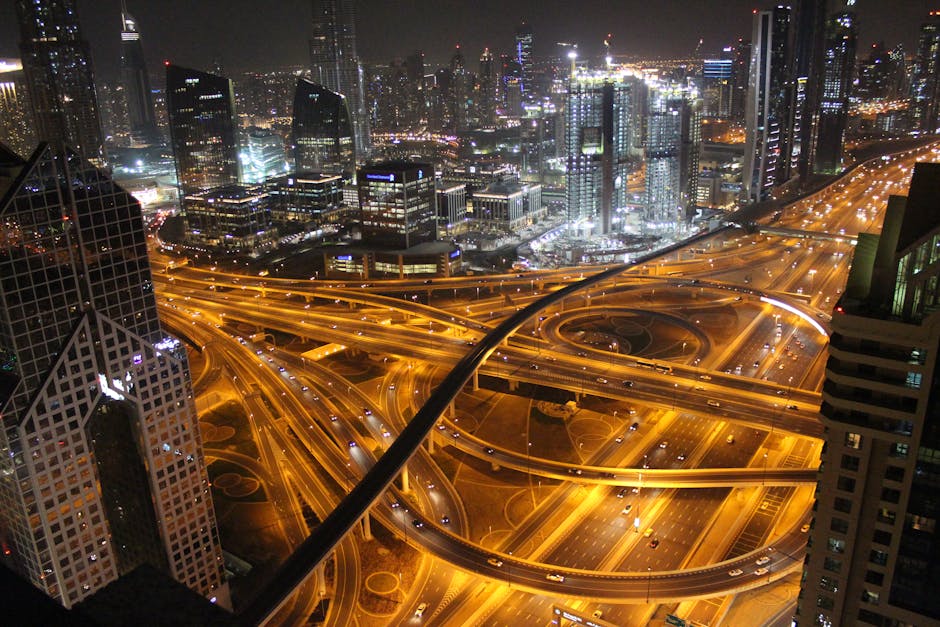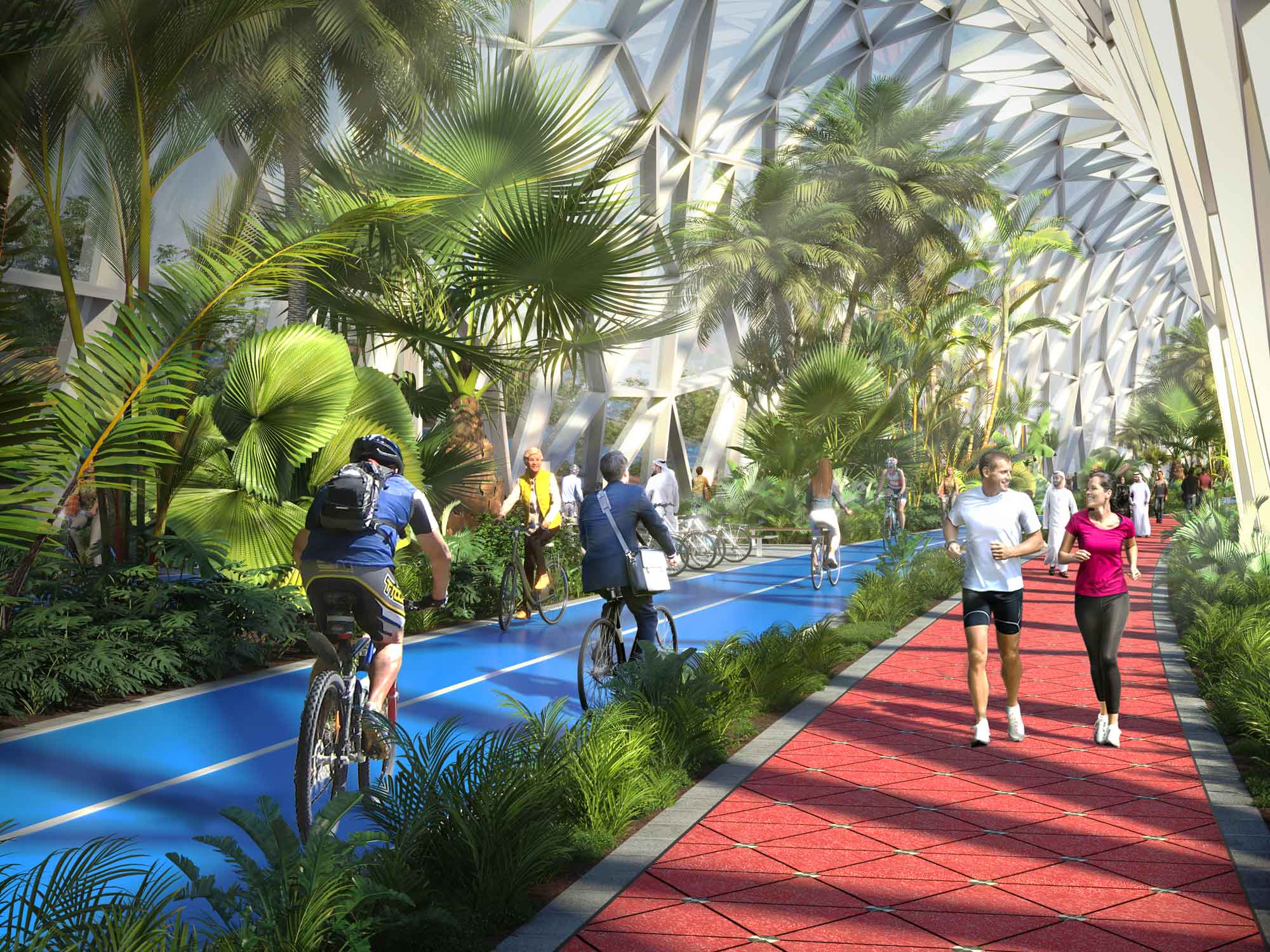- Key Takeaways
- The Infrastructure Blueprint
- How Infrastructure Lifts Property Value
- The Human-Centric Element
- The Sustainability Premium
- Conclusion
- Frequently Asked Questions
Key Takeaways
- Strong foundations for a world-class city Dubai’s infrastructure strategy is founded on a crystal-clear vision, government investment and public-private partnerships, resulting in the city being a global leader in development standards.
- Long-term planning fits with plans for economic diversification, making sure infrastructure projects appeal to international investors and promote long term growth.
- Government policies emphasize on sustainable construction and renewable energy, with simplified procedures that promote fast project implementation and enhanced quality of life.
- With such enhanced connectivity, economic hubs and lifestyle amenities property values and investor confidence are sky high making Dubai a lucrative destination for global real estate investment.
- Our human-centric infrastructure includes world-class healthcare, education and culture, well-being and an active community.
- Sustainability initiatives and smart city technologies are integrated into infrastructure design, fostering long-term value, environmental stewardship, and resilience against future challenges.
Dubai world-class infrastructure signifies that it has a superbly constructed road network, state-of-the-art airports and high-speed public transport. With the skyline dotted with soaring towers and master-planned neighborhoods equipped with connected utilities and smart city technology. Dubai’s ports back world trade and effortless travel. Dubai’s clean streets, world-class infrastructure, robust water systems and reliable power supply demonstrate an obsession with quality. To understand how they mold day-to-day life and development, the following sections decompose each component in more detail.
The Infrastructure Blueprint

Dubai’s infrastructure mindset is informed by a strategic blueprint designed to scale, endure, and impress. The blueprint outlines immediate-term projects—such as new metro bridges and solar park expansions—and longer-term ambitions, including AI-ready smart city infrastructures. The government’s priorities are centered on Dubai as a global hub for business, transport and quality of life, with policies and projects that fuel innovation and competitiveness.
Strategic Vision
Dubai wants more than new buildings or roads, it wants economic diversification and a smart global role. Key goals are to complete a metro bridge in 2025 and open Etihad Rail Phase 2, which could increase land values by as much as 40%. The plan is connected to the Dubai Economic Agenda, bringing overseas investors with initiatives that represent long-term certainty. Key milestones so far are master-planned towns with 30-50% build-out, such as the Al Qudra solar park. Looking ahead, the investments prioritize AI infrastructure, with $27 billion allocated by 2030, positioning Dubai as a trailblazer in smart city technology and sustainability.
Government Policies
Dubai’s budget backs massive investment in roads, transit and digital systems, helping to accelerate planning and approvals.
- Green building and solar incentives (such as Al Qudra solar park)
- Fast-track permits for mixed-use developments
- At minimum, include a mandatory AI and smart tech integration on all new projects.
- Policies to promote walkability and public transport
Rules now assist builders launch quicker, slashing red tape. These initiatives have brought in amenities such as improved metro connections, parks, and services—all with the goal of increasing quality of life and sustaining stable property demand—up to 20% higher in proximity to expressways and rail.
Public-Private Partnerships
Public-private partnerships drive many of Dubai’s most ambitious projects. They import external thinkers, share hazards, and combine assets for big-time construction. Yet the Etihad Rail is a shining example, pairing private investors with government financing to develop an inter-emirate rail system. Stakeholders such as developers, tech firms, and local authorities could do design, funding, or innovating. These collaborative endeavors allow Dubai to pursue initiatives that would be difficult to finance or manage independently and have accelerated urban development and enhanced transportation.
Global Benchmarking
| City | Metro Length (km) | Rail Connectivity | AI Investment (USD) | % Renewables |
|---|---|---|---|---|
| Dubai | 89 | High | 27B by 2030 | 7% |
| Singapore | 230 | High | 2B by 2025 | 3% |
| London | 402 | Very High | 5B by 2030 | 6% |
| Hong Kong | 174 | High | 1B by 2026 | 2% |
Network size, smart tech adoption, and renewable energy are some of the factors global rankings use. Dubai ranks top, luring overseas investors. These outcomes assist in pushing up real estate prices 15-25% through 2030 and drive Dubai towards more transit, mixed-use zoning and tech in every new build.
How Infrastructure Lifts Property Value
From transport links to modern amenities, each underpins real estate demand, lifestyle and investment.
1. Enhanced Connectivity
Rapid transit makes homes more accessible, increasing their desirability.
Dubai Metro expansion connects business districts, malls and neighborhoods, slashing trip times and increasing connectivity across the city.
Easy roads and shiny new highways make it easy to drive to work, home and fun. This convenience tends to drive up the prices of adjacent homes.
Global buyers seek well-connected locations. They view robust transit as an indicator of development and sustainability.
2. Economic Gravity
Big bangs, like Expo 2020 and new airports, can transform places into economic magnets, attracting people and companies.
New infrastructure = more jobs, from builders to shop workers.
Following Expo 2020, the site area attracted additional buyers and tenants.
With improved roads, ports and airports, firms established offices nearby, increasing local housing demand.
3. Lifestyle Appeal
Dubai’s world-class malls, parks and schools provide comfort and choice. Contemporary planning links these bonuses to new streets and transit. It simply makes day-to-day living more convenient and attracts those who desire convenience and are willing to pay for it. Homes by top spots, such as the Burj Khalifa, generally cost more because buyers look for these add-ons.
4. Future-Proofing
Green projects and smart tech prepare houses for lasting value. Sustainable plans – like Dubai’s Vision 2040 – keep the city poised for expansion. Green buildings and clean energy extend home life. Elastic infrastructure allows cities to address emerging demands.
5. Investor Confidence
Solid infrastructure soothes speculators. Dependable roads and utilities = reduced expenses. Current projects maintain interest. Robust infrastructure sustains property values.
The Human-Centric Element

Dubai’s infrastructure is molded to center on humans. Projects are all about safe, walkable, green spaces. New neighborhoods are for people, not just cars. With parks, bike lanes and tree lined streets, city planners design for a community where everyday necessities are at arm’s reach. It’s a turn towards 15-minute and 20-minute city concepts, so people can stroll or cycle to schools, clinics, stores, and parks. It prioritizes health, connection and quality of life — and the city’s expansion.
World-Class Healthcare
Dubai’s hospitals and clinics are using the latest tools and smart systems to deliver excellent care. Numerous sites provide specialized care, from cardiac care to pediatric care. There’s a drive to deploy emerging technology such as digital records and telemedicine so patients receive timely assistance and follow-up. These initiatives attract overseas visitors for specialized treatment, assisting in the influx of new talent and capital. Health centers collaborate with private partners to enhance opportunities for locals and tourists.
Premier Education
Dubai’s schools and colleges cater to students from across the globe. From international academies to neighborhood colleges, selection are broad and education is superb. The city connects with leading schools to disseminate innovative educational methods. This keeps skills fresh and satisfies the demands of a frictionless job market. The education here is in step with Dubai’s drive for a smart, skilled workforce.
Leisure and Culture
Dubai’s investment in large parks, green walks and art spaces. Museums, theaters and event locations provide us all a venue to come together and exchange thoughts. These just sprinkle fun and color on the everyday and help unite people. Since a lot of the events and sites are publicly accessible, the city remains vibrant and teeming with opportunities to explore or chill.
The Sustainability Premium

Sustainability is now integral to Dubai’s world-class infrastructure. It influences both the city’s development and its ability to attract investment. Recent innovations aimed at minimizing waste, conserving energy, and greening urban life. Property buyers and investors are beginning to appreciate these shifts. The sustainability premium – green features can command higher prices and sell faster.
Ways sustainability enhances property values in Dubai:
Homes in energy-saving and resource-smart communities see a 15–20% increase in their value.
Smart buildings can sell as much as 18% faster and for more money.
A lot of purchasers are willing to put a sustainability premium on green certifications and sustainable features.
Rents can rise as much as 12% per year for these units.
Being near public transport, parks and local services all increase the premium.
Demand for homes near highways and transit hubs is 10–20% higher.
By 2030, urban real estate values may increase 15–25% due to sustainable and smart infrastructure.
That premium may end up mattering even more as cities get bigger and buyers care more about the planet.
Green Initiatives
Dubai’s infrastructure employs a combination of giant green leaps. Solar parks like the Mohammed bin Rashid Al Maktoum Solar Park demonstrate the city’s push for renewables. New buildings often comply with green codes, reducing energy and water consumption. More parks, tree-lined streets and open spaces. These assist the city in remaining cooler and increasing well-being. Environmentally-conscious investors consider Dubai a safe bet.
Smart City Integration
Smart city tools make Dubai’s systems hum. Sensors and smart meters monitor electricity and water to prevent waste. Data assists city planners in optimizing roads, public transportation, and utilities. These are just steps that ease life and save cash. The effect is to make the city vibrantly contemporary, plugged-in and forward-looking.
Resilient Design
Resilient design means projects can stand up to heat, storms, or even market shifts. Builders employ hardy materials and ingenious designs to ensure longevity. That keeps property values stable — even when times are tough. Dubai’s metro and flood-ready roads are excellent instances.
Conclusion
Dubai continues to demonstrate how world-class roads, metro lines and smart buildings create better lives. Quick veins slice travel times. Seamless metro journeys make them bypass congestion. Contemporary parks and walkways provide people more opportunities to relax. Green tech in water and power slashes waste, saves cash. Houses by the best schools/malls/clinics increase in value. We want safe, clean, and easy places to live. Dubai’s drive for smart, green and people-first public spaces delivers genuine benefits. Purchasers, owners, and tenants alike benefit from these enhancements. To keep current or gain a competitive edge in this swift city, track all the news on new projects and new trends.
Frequently Asked Questions
What makes Dubai’s infrastructure world-class?
Dubai’s world-class infrastructure includes sophisticated transport, utilities and smart city technologies. These aspects enable a productive city lifestyle and international accessibility, further positioning Dubai as a top city choice for residents and investors alike.
How does infrastructure impact property value in Dubai?
World-class infrastructure increases property values by making them more accessible, safe, and convenient. It’s like Dubai’s world-class infrastructure — great roads, public transport, and amenities lure buyers and increase the value of every property nearby.
Why is human-centric infrastructure important in Dubai?
Human-centric infrastructure is all about making life as comfortable, accessible and safe as possible for residents. In Dubai, this equates to walkable communities, parks and accessible amenities resulting in an enhanced lifestyle for all.
What role does sustainability play in Dubai’s infrastructure?
Sustainability is a priority as well in Dubai’s world-class infrastructure. Green buildings, renewable energy and water-saving technologies help reduce impact and make healthier, future-ready communities.
Are Dubai’s infrastructure projects accessible to international residents?
Yes, Dubai makes it for everyone. Multi-lingual sign posting, international standards and superb public transport ensure that the global resident can easily get about and flourish.
How does Dubai balance rapid growth with sustainable development?
Dubai enforces stringent regulations and embraces emerging technologies to maintain sustainable infrastructure development. It safeguards natural resources at the same time as it actually keeps up with the city’s burgeoning demand.
What are some examples of world-class infrastructure in Dubai?
Dubai boasts the Burj Khalifa, cutting-edge metro lines, smart roads and eco-friendly projects such as the Sustainable City. These projects highlight Dubai’s dedication to innovation and world-class standards.



